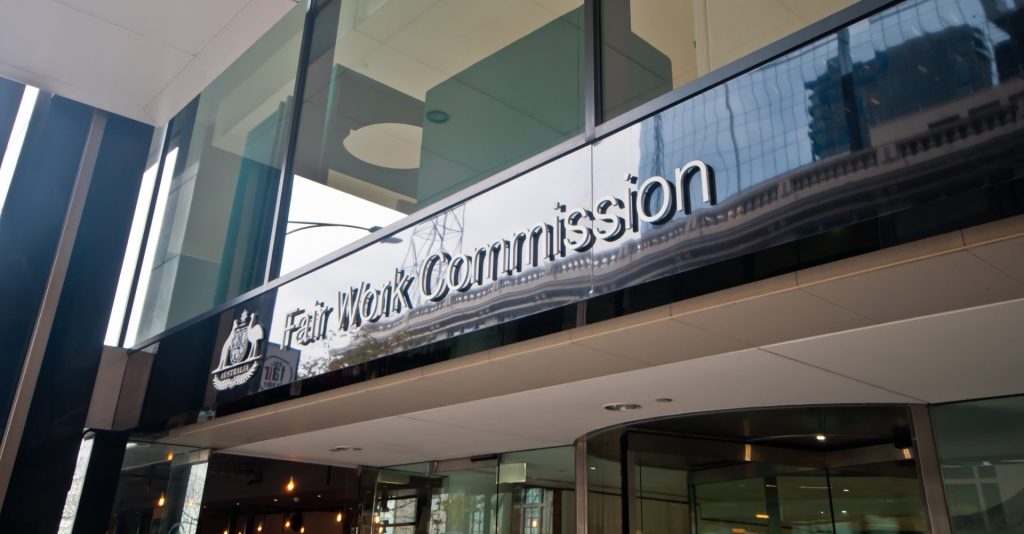07 February 2025
Wage theft is now a criminal offence
Sadly, many employees are not paid correctly by their employer. This may be because the employer is not aware of a Modern Award which applies to the employment or refers to the wrong Modern Award or incorrectly classifies the employee pursuant to the Award.
For employees who are not covered by a Modern Award, the employer must pay them at least the Federal Minimum Wage (as at 1 July 2024 this is $24.10 per hour or $915.90 per week for permanent employees).
While in many cases an underpayment by an employer is inadvertent, some unscrupulous employers deliberately underpay their workers. Such employers often take advantage of vulnerable workers such as young people just entering the workforce, or overseas students, or recent immigrants.
New criminal underpayment laws start 1 January 2025
As from 1 January 2025 the Fair Work Act (Cth) 2009 (“the Act”) was amended to create a criminal offence of wage theft, treating intentional underpayment of employees in a similar manner to fraud and property and financial crimes.
An individual who intentionally underpays employees or who is complicit in an intentional underpayment – such as directors or officers of a corporate employer – can be imprisoned for up to ten years. In addition, very significant fines can be imposed:
- for a corporate employer (a company) – up to $8,250,000 or three times the amount of the underpayment, whichever is the greater; and
- for an individual employer or an individual who is complicit in an underpayment by a corporate employer – up to $1,650,000 or three times the amount of the underpayment, whichever is the greater.
A corporate employer (a company) can be found guilty of wage theft if the Board and / or executives of that company fail to ensure compliance with the law regarding minimum wages and / or the company has a culture which tolerates non-compliance with the law – even if the Board members and executives are not aware of a specific underpayment to one or more staff members.
The Office of the Fair Work Ombudsman (“FWO”) is responsible for investigating criminal wage theft and, if sufficient evidence exists, can refer the matter to the Commonwealth Director of Public Prosecutions or the Federal Police for prosecution.
The criminal offence of wage theft operates alongside existing civil remedies for underpayment. So, quite apart from the potential for criminal prosecution for a deliberate underpayment, an employee who has been underpaid can pursue a civil claim to recover the underpaid wages and a civil fine can be imposed on the employer if they have contravened a Modern Award, Enterprise Agreement or the Act.
Protection for Small Business Employers
The government has established a “Voluntary Small Business Compliance Code” which provides protection from prosecution for small businesses who have inadvertently underpaid their employees. (A small business is a business which employs less than 15 staff.)
If a small business has underpaid an employee and the FWO concludes that the business has complied with the Code, the small business cannot be criminally prosecuted. However, the small business can still be liable for civil penalties for underpayment of employees.
The Code sets out a number of factors which the FWO is required to assess including whether the small business employer has:
- taken reasonable steps to ascertain correct employee pay rates and entitlements;
- made reasonable efforts to stay up to date with changes to their obligations as an employer, including in Modern Awards, Enterprise Agreements or contracts of employment;
- checked and relied on employee information it reasonably believed was accurate in relation to wage rates;
- sought information or advice from a reliable source (such as a lawyer expert in workplace law) about paying employee entitlements correctly;
- when seeking advice, provided information that the employer reasonably believed was accurate;
- taken steps to fix the underpayment;
- cooperated with any inquiry or investigation the FWO has conducted in relation to the underpayment; along with
- other relevant circumstances, such as what prompted the underpayment or the way the employer became aware of the underpayment.
How can Andersons Help?
Andersons encourages its small business clients to familiarise themselves with the Code and comply with it. The FWO has published a helpful guide to assist small business owners to comply with the Code. This guide can be found here:
A guide to paying employees correctly and the Voluntary Small Business Wage Compliance Code
We invite any employee or employer who requires assistance to: determine the correct rate of pay; determine whether an underpayment has occurred; and / or pursue or defend a civil underpayment claim to contact Margaret Kaukas, Senior Counsel on 8238 6666 or email enquiry@andersons.com.au





